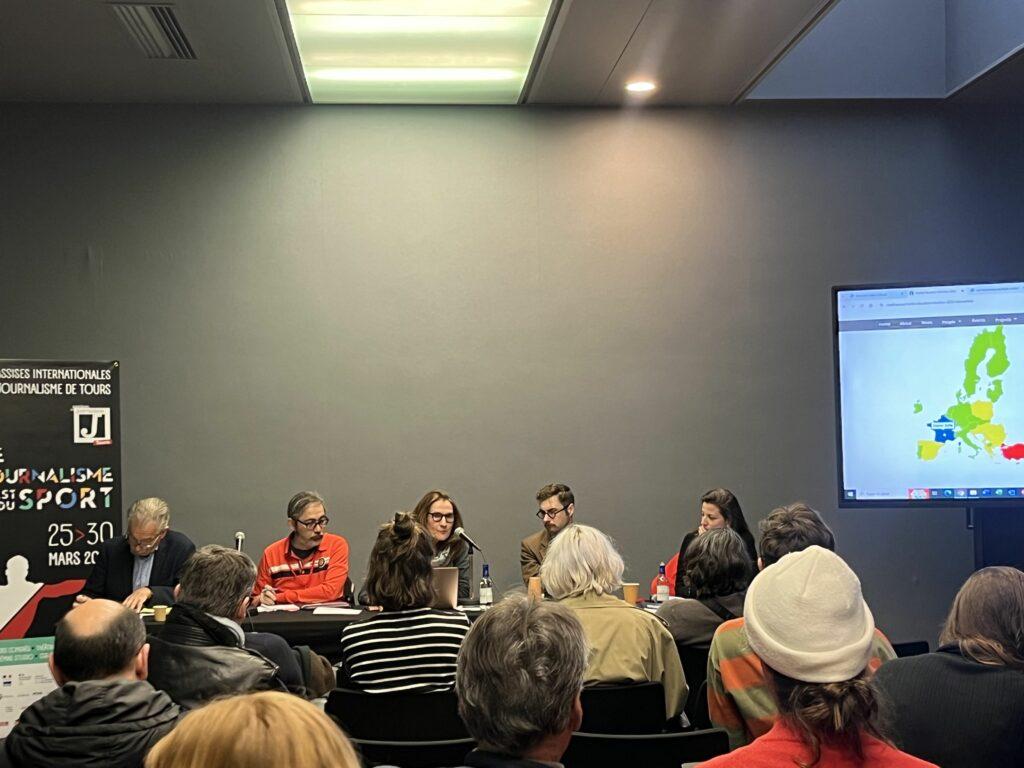On Tuesday, the 26th of March, the European Council adopted the European Media Freedom act. According to this institution, the new law “will safeguard media freedom, media pluralism and editorial independence” in Europe. How can it help to fight against propaganda, fake news and also against spying on journalists?
One day after adopting the European Media Freedom act by the European Council, during an international journalism conference in Tours, there was a round table concerning this law. Some of the points of this legislation include protecting sources of media, ensuring transparency, testing the plurality of media and independence of public media.
“No public media should be turned into a propaganda channel,” said Věra Jourová, vice-President for Values and Transparency at the European Commission, in September 2022. She also underlined that journalists must not be spied on because of their job.
Who decides what is propaganda?
Questions regarding propaganda and spying on journalists remain important for the European Union. For example, in France, in the middle of February 2024, Minister for Europe and Foreign Affairs Stéphane Séjourné revealed the discovery of a pro-Kremlin propaganda network “Portal Kombat”. One year before that, “Le Monde” wrote an investigation about the network “Infodefense”, which translated pro-Kremlin content into nearly 20 languages.
“I think it is very important for us. Banning the media is not the best antidote to disinformation,” says Renate Schroeder, director of the European Federation of Journalists. “There should be propaganda media and we have it everywhere but who then decides what is propaganda and what is not? But the most important thing that we had, specifically for Russia Today, is that no government should decide to ban it or not. If, as in Germany, it was an independent media regulatory authority that banned Russia Today because it said: “It doesn’t have the right distance from the state”.
Derogations concerning spying on journalists still exist
Regarding spying, there was an example of Ariane Lavrilleux who was arrested in June 2023 for reporting on the Egypt spy operation. After her release, she said that she was under the supervision of the General Directorate for Internal Security. Another case concerns Russian journalists who left their homeland because of the war in Ukraine and repressions by the Russian government. Several of them stated in September 2023 that they may have been targeted with spyware.
“Parliament improved it (conditions which concern spying) a little bit, but we have some safeguards, when it comes to spy surveillance,” explains Renate Schroeder. “They still put some derogations in. We are not happy about it, we find that it is not enough. We hope that more will be done on the national level. We have a really big challenge in front of us.”
Stages of adopting the law
Discussions concerning the European Media Freedom act began in mid-April, 2022. New rules and mechanisms were proposed for “promoting media pluralism and independence across the EU”. Subsequently, the European Council secured the mandate for negotiations and by the end of 2023 this institution and the European Parliament finalized the deal.
Meanwhile, in December 2023 the website “Disclose” reported that seven European countries – France, Italy, Finland, Greece, Cyprus, Malta, and Sweden – were advocating for the possibility of surveillance of journalists. These countries explained their position by necessity of national security.
However, the final version of the Act includes only one exception when intrusive surveillance could be deployed. It should be the case “where it is justified by an overriding reason of public interest”. It also must be authorized by court “or, in exceptional and urgent cases, subsequently confirmed by a judicial authority or an independent and impartial decision-making authority”.
